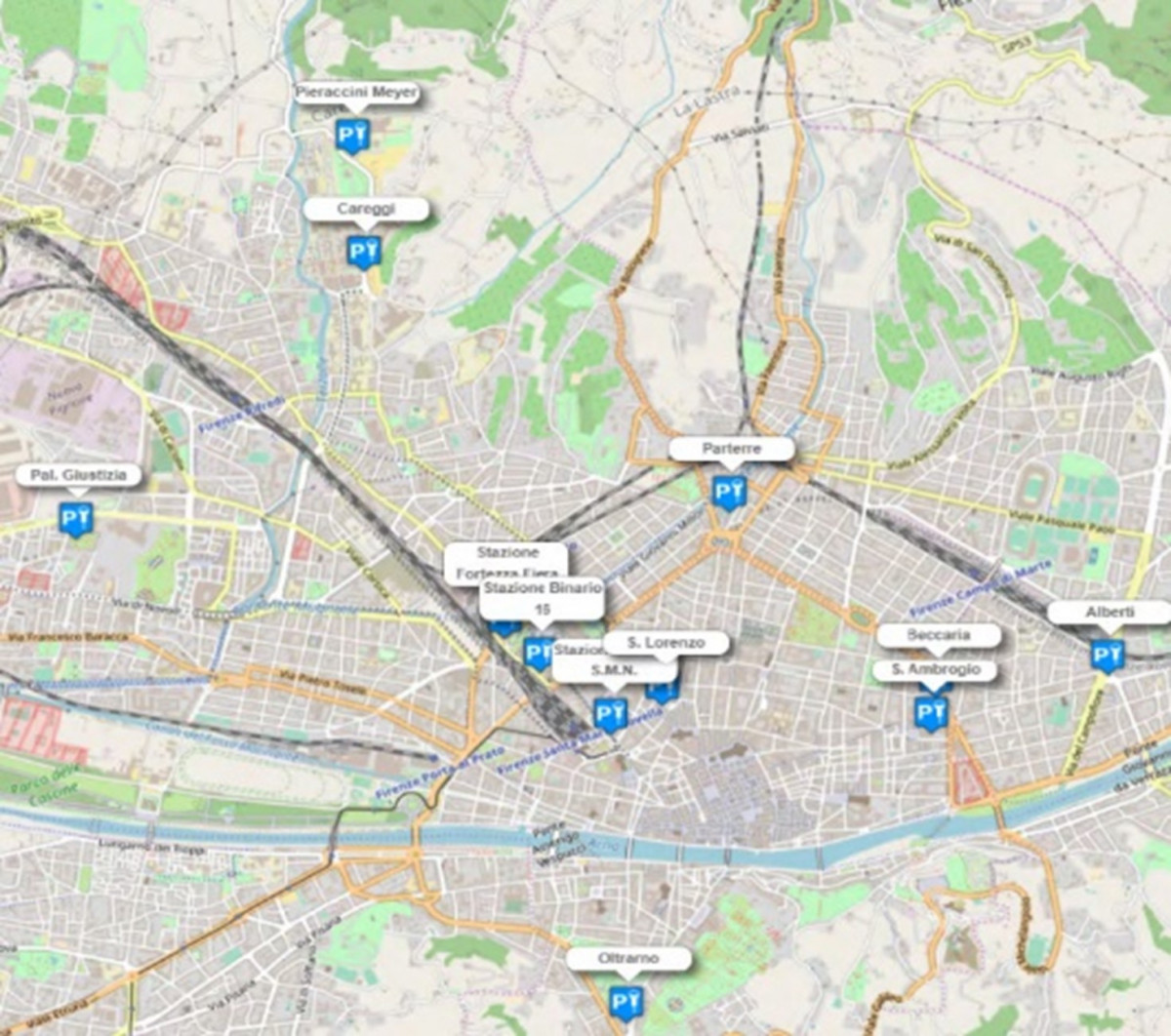In our cities, the number of vehicles is getting higher and higher if compared to the development of the surrounding urban spaces; thus, the services providing available parking slots are becoming even more relevant for urban mobility management. Drivers are wasting a considerable amount of time while trying to find a vacant parking lot, especially during peak hours and in specific urban areas (e.g., hospitals, stations, parks, sport stadium), 30% of them are just looking for a parking in most of the cities. Car drivers, in dense city districts, usually spend from 3.5 to 14 minutes to look for a slot and this means spending money and producing pollution, thus affecting the general society costs.
The solution developed provides predictions of the number of available parking slots in the silos or area with a resolution of 15 minutes for the next 24 hours, and this can be extremely important to improve the parking system management and the citizen transportation.
In detail this solution:
- predicts the number of available parking slots in the parking facilities with a resolution of 15 minutes for the next 24 hours;
- utilizing predictions provided by advanced Artificial Intelligence Machine Learning Models with extremely accurate performance even in critical conditions during peak hours, when free slots are few;
- is suitable for parking facilities with several different working conditions for the one dedicated to specific facility (football, stadium, hospital, etc.) to multipurpose ones (station, expo, etc.) and others on outskirts of cities;
- is based on urban parking areas with counting facilities and IoT sensors that can monitor the traffic flow related metrics in the nearby;
- is robust to eventual data missing situations implementing an effective imputation strategy.

The solution has been applied to 12 parking facilities in the Municipality of Florence. These parking area present different working conditions, total number of parking slots, and are located in three main different areas of Florence: close to hospitals, in the city center and in the outskirts.


The majority of the parking area daily reach the critical conditions in which the available parking slots become close to zero especially for those close to the railways stations, hospitals, major hubs. That is the situation when drivers have to be alarmed in advance giving as more precise predictions as possible.

The details on the predictive performance of the AI algorithm developed are reported in the table below considering the Mean Absolute Scaled Error (MASE). Overall the MASE for the Hospital parking area on the test set has been of 1.52 and over all 12 parking areas of just 1.93.
| MASE | Morning | Afternoon | Evening |
| Hospital | 0.76 | 1.89 | 1.99 |
| All 12 areas | 1.18 | 2.24 | 2.36 |
The entire approach can be considered flexible, robust to critical cases and robust to sporadic lack of data. To overcome this problem the solution uses a Kalman filter for the imputation of missing data in real time. This solution, together with the capability of the model to be precise in terms of Mean Absolute Scaled Error (MASE), has turned out to be robust especially in critical conditions when the free slots are close to zero.
Please read and cite the work as: "Predicting Available Parking Slots on Critical and Regular Services by Exploiting a Range of Open Data," in IEEE Access, vol. 6, pp. 44059-44071, 2018, doi: 10.1109/ACCESS.2018.2864157.
https://ieeexplore.ieee.org/stamp/stamp.jsp?arnumber=8430514